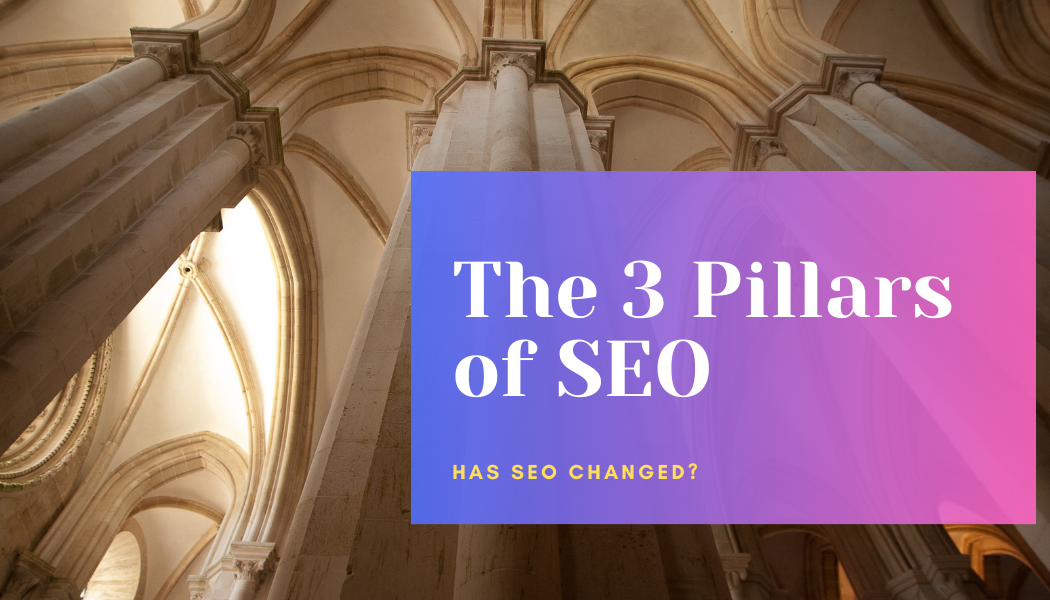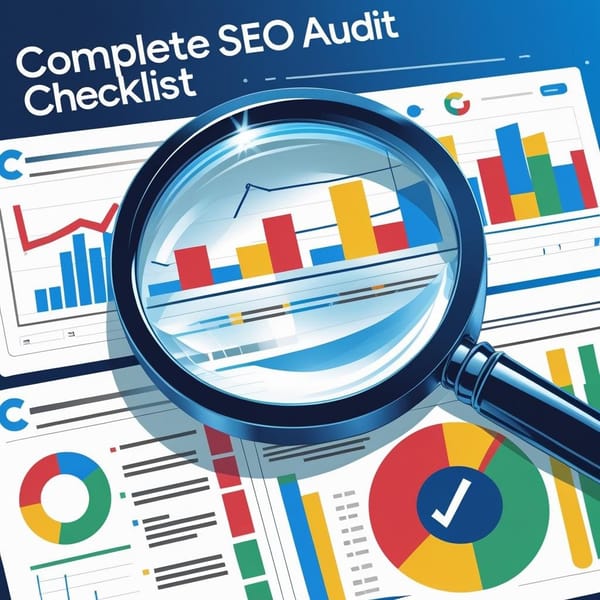Should the 3 Key Areas of SEO be Re-Evaluated in 2025?

Traditionally, SEO has been mainly focused on three essential areas: technical SEO, on-page SEO, and off-page SEO. Since they were defined way-back-when, the way we talk about them has not changed all that much. For example, we still mainly refer to "off-site SEO" as "building links" rather than discussing it in the greater context of building authority and brand visibility that's so critical to SEO nowadays. Don't get me wrong, authority is frequently discussed as a key strategy but usually as its own thing, separate from the traditional core-areas.
How can we integrate these changes and areas we focus on today back into the traditional SEO foundations? Should we? Below are my thoughts but I would love to hear yours
Let's start by analyzing what those traditional core-areas are, and what they look like today:
Pillar 1: Technical SEO – The Foundation for Searchability
Technical SEO remains the crucial foundation for any effective SEO strategy in 2025 Without the basics of technical SEO established, even the most strategic on-page and off-page efforts will fail to drive results. As search engines continue to evolve, technical SEO becomes even more vital. Having a strong technical foundation will ensure search engines can discover your content and understand the content you produce.
The key aspects of technical SEO in 2025 include:
Site Structure and Architecture: A clean internal linking structure, logical URL naming conventions, and organized website architecture enable search engines to easily crawl and categorize pages. Ensuring a search-friendly site structure facilitates better discoverability, indexing, and page rankings.
Mobile Optimization: With over 60% of searches now happening on mobile devices, having a mobile-optimized website is mandatory. This includes responsive web design and mobile-friendly page elements. Optimizing for mobile enhances user experience and search visibility.
Performance Optimization: With page loading speed being a ranking factor, optimizing website performance through code minification, browser caching, lazy loading, and image compression leads to better user retention and search rankings. Maximizing website speed enhances user experience.
Schema Markup: Schema markup uses code to tag different pieces of content with specific data, enabling search engines and AI assistants to understand the content and answer user queries quickly. Schema can power rich results like reviews, FAQs, and more.
Laying the technical SEO groundwork empowers websites to be easily understood and indexed by search algorithms. It also builds credibility with users through better performance and usability.
Pillar 2: On-Page SEO – Crafting Content for Searchers
While technical SEO establishes the foundation of a website's search presence, the content created on each page not only helps search engines understand how to rank your content for relevant user queries, but it creates content relevant to users. On-page SEO has evolved from a focus on keywords to optimizing content for user intent, search behavior, and platform preferences.
A best practice that remains is starting with thorough keyword research to uncover relevant search queries and industry trends. This informs content creation aimed at providing the answers and solutions searchers are looking for. With the rise of different types of search experiences, on-page content should align with natural language queries rather than exact match keywords. Consider what overall information the user is looking for, follow-up questions they may have, synonyms they may use and craft content using this information.
Creating high-quality, informative, and engaging content builds expertise, experience, authority, and trust (E-E-A-T). Elements that are essential to earn rankings in 2025. Multiple content formats like images, videos, and audio cater to different learning styles. Verifiable facts and expert sources combat misinformation and establish credibility.
In essence, on-page SEO in 2025 emphasizes crafting content for searchers over exact keywords, while still utilizing keyword research to understand intent and boost discoverability.
Section 3: Off-Page SEO – Building Authority and Recognition
In 2025, off-page SEO tactics are still critical for establishing credibility and authority for websites in the eyes of both search engines and users. While on-page optimization crafts content for searchers, off-page signals communicate external validation of that content quality and expertise.
The most powerful off-page signal continues to be high-quality backlinks from reputable websites. However, the emphasis has shifted from quantity to quality (authority and relevance) when acquiring backlinks. Even a few links from authoritative, relevant sites can boost rankings more than a large volume of low-quality links. Getting mentioned in industry roundups by influencers, references by mainstream media publications, and links from well-known sites in your field establish authority.
Social signals also play a role in off-page SEO. Shares, likes, mentions, and engagement with content on social media platforms provide additional signals of content quality and website trustworthiness. While social signals carry less weight than backlinks, they can still enhance search visibility and credibility.
Wider brand mentions, like references by industry experts and mainstream media publications, also build authority and thought leadership. PR efforts to earn credible brand mentions help demonstrate market recognition and differentiate websites as trusted sources on a given topic.
In essence, off-page optimization is all about leveraging external signals to communicate website credibility and reinforce on-page expertise. Rather than chasing the quantity of links and social shares, 2025 calls for an off-page strategy focused on the quality, relevance, and impact of signals. The trust and authority built through off-page SEO leads to higher engagement, lower bounce rates, and greater search visibility.
2025 Focus: Optimizing for User Experience
Not a new pillar, but an integrated approach. As search engine algorithms continue to advance towards more closely matching and understanding user intent, the user experience provided by websites emerges as a crucial consideration for SEO in 2025. Optimizing for user experience is an important part of your SEO strategy that can be integrated into all of three key areas above.
Understanding user intent through research and search query data enables you to align on-page content and website interactions to the goals and needs of visitors.
Optimizing page layouts, speed, and calls-to-action for ease of consumption on all devices also enhances user experience. Testing variations to maximize goal conversions reflects an understanding of your high-intent visitors.
Most importantly, providing expertise, experience, authority, and trustworthiness (E-E-A-T) via your content and website elevates the user experience by offering a unique and credible answer to their queries.
Crafting content for users rather than keywords, and guiding website interactions based on user analytics, is the future of effective SEO. While technical and off-page factors remain important, optimizing for the user experience is emerging as the key way to earn trust, engagement, and conversions in 2025 and beyond. User-centric SEO leads to top search visibility over time.
3 Pillars of SEO and Their Tactics
The 3 Key Areas of SEO broken out by area, tactics and KPIs
| SEO Area | Core Tactics | Key Performance Indicators (KPIs) and Metrics |
|---|---|---|
| Technical SEO | - Website speed optimization<br>- Mobile-friendliness and responsive design<br>- Secure sockets layer (SSL) for website security<br>- Ensure canonical tagging is in place<br>- Ensure your site passes Core Web Vitals | - Page load time<br>- Mobile usability scores<br>- Security issues (SSL certificates)<br>- Good Core Web Vitals metrics |
| On-Page SEO (Experience Optimization) | - Focus on creating content to match user intent and relevance<br>- Creation of content that follows E-E-A-T principles of expertise, experience, authoritativeness, and trust | - Organic search traffic<br>- Click-through rate (CTR)<br>- Keyword rankings<br>- Conversion rate |
| Off-Page SEO (Authority Building) | - Building high-quality backlinks from reputable sites<br>- Social media marketing to enhance brand visibility and engagement<br>- Brand mentions and citations across the web | - Number and quality of backlinks<br>- Domain authority score<br>- Referral traffic<br>- Social media engagement metrics<br>- Brand visibility and mentions |




